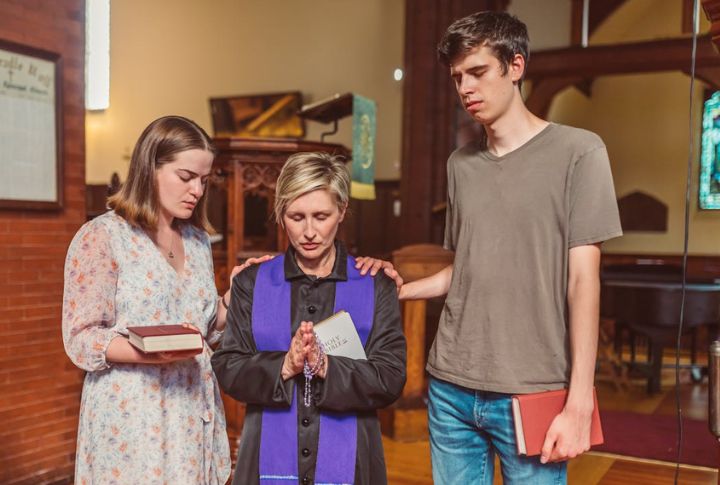
So, your favorite person just decided to ditch the church? It’s like getting blindsided in a movie you didn’t ask to watch. But before you start writing them off as “lost,” let’s talk about how to handle this. It turns out that this could be a challenge that helps your relationship evolve, not collapse. Who knew, right? Here’s how you can handle this shift without losing your connection.
Acknowledge Your Emotions First

Recognizing the emotions that arise when someone close leaves the church is vital for healing. Grief, anger, and confusion are common, especially in LDS culture, where eternal family ties are emphasized. Suppressing these feelings can lead to long-term psychological distress, so allowing yourself to acknowledge and process them is important.
Avoid Making It About You

If someone you care about leaves their faith, it’s easy to feel personally hurt. However, religious disaffiliation is rarely a rejection of you. Consciously shifting the focus to your loved one’s experience fosters empathy, and understanding their personal reasons helps maintain emotional connection without turning the situation into a defensive battle.
Stay Open To Honest Conversations

Communication is key to preventing estrangement. Keeping the lines of dialogue open helps build trust, even if your beliefs differ. Many ex-LDS members find that their relationships improve when they’re allowed to share their thoughts freely, and avoiding taboo subjects can often cause more tension than discussing them openly.
Reaffirm The Relationship Beyond Religion

Family bonds can survive ideological shifts with conscious effort. Consistently showing love and support that isn’t tied to shared beliefs reinforces your relationship. Ex-Mormons frequently cite unconditional support as essential during their transition, so continuing to express care beyond faith can help preserve the connection.
Resist The Urge To Preach Or Correct

Attempting to reconvert someone or offering unsolicited corrections can damage the relationship. Ex-members have usually wrestled deeply with their faith, and pressure to change their mind often leads to a permanent disconnect. People are more likely to return to faith when they feel respected rather than judged.
Learn Why People Leave The LDS Church

A genuine understanding of the reasons behind a loved one’s decision can reduce confusion and cultivate compassion. Top reasons usually include concerns about the church’s history, cultural rigidity, or a lack of belonging. Most ex-members leave not out of rebellion but in pursuit of spiritual integrity, so responding with empathy is key.
Find Support Within The Faithful Community

The transition of having a loved one leave the church can feel isolating, but you’re not alone. LDS leaders encourage compassion for those who leave, and there are church-based mental health resources available. Sharing your thoughts with those who have faced similar experiences can help ease emotional confusion and offer direction.
Avoid Labeling Or Judging Their New Path

Unwarranted labeling of someone as “apostate” or “lost” can cause irreparable harm. Judgment frequently leads to self-censorship or isolation for both parties. Many who leave the faith still lead moral, purpose-driven lives. By showing respect for their journey, you can maintain a strong connection, even if your paths differ.
Respect Boundaries Around Church Topics

After someone leaves the church, conversations about faith can become sensitive and emotional. Recognizing when to avoid discussing religious topics helps maintain respect and trust. Many former members appreciate conversations that don’t center on church matters, which can foster a more balanced and comfortable relationship moving forward.
Give Yourself Time To Adjust

The emotional journey that comes with a loved one’s faith transition isn’t immediate. It can take months or even years to come to terms with their decision. The process of grieving spiritual disconnection is legitimate, and time allows you to reach emotional clarity and resilience, ultimately fostering peace.

